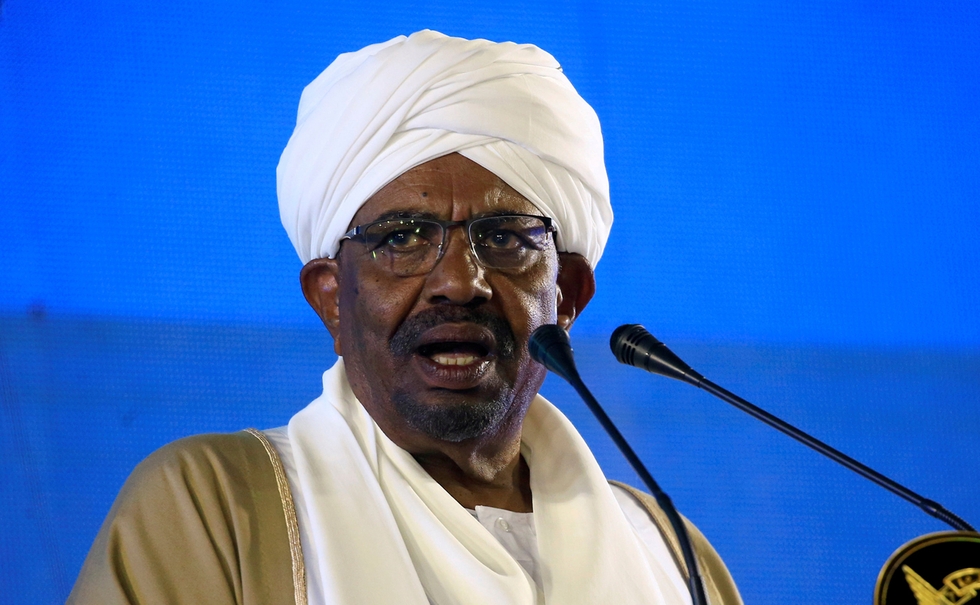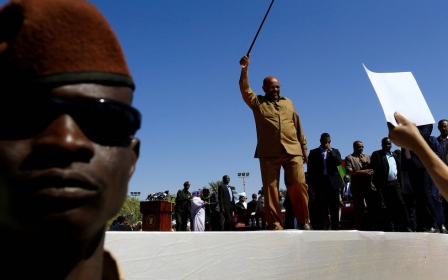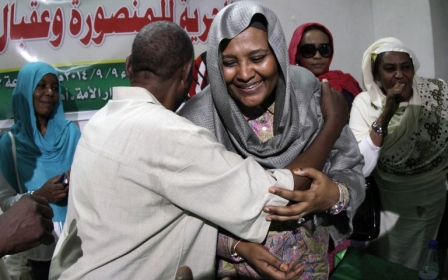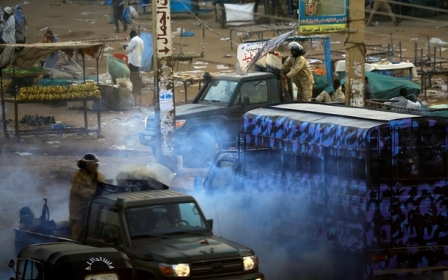Sudan's Bashir opens border with Eritrea as protests continue

Sudan's President Omar al-Bashir, apparently searching for regional friends amid weeks of protests against his 30-year rule, announced he was reopening the border with neighbouring Eritrea, which has been shut for a year.
Addressing a crowd of supporters on Thursday during a visit to the Kassala provincial capital near the border with Eritrea, Bashir said he was reaching out to Eritreans, who he called "brothers".
"I announce here, from Kassala, that we are opening the border with Eritrea because they are our brothers and our people. Politics will not divide us," he added.
Sudan closed the border in early January 2018 after Bashir announced a six-month state of emergency in the regions of Kassala and North Kurdufan to help combat arms and food trafficking.
Bashir has visited Qatar and Egypt since the protests began, while the United Arab Emirates, Saudi Arabia and Kuwait have expressed support for the veteran leader.
New MEE newsletter: Jerusalem Dispatch
Sign up to get the latest insights and analysis on Israel-Palestine, alongside Turkey Unpacked and other MEE newsletters
As Bashir spoke, fresh demonstrations erupted in various parts of Khartoum and Omdurman, the half of the capital on the opposite bank of the Nile, as well as in towns in Jazeera state to the south, amid high security.
Protesters heeded calls issued on Wednesday by a civic group that had organised previous demonstrations.
Widespread protests
Sudanese police fired tear gas at crowds of demonstrators in the capital and other cities on Thursday, witnesses told AFP.
Chanting "freedom, peace, justice" - the rallying cry of the protest movement that has rocked Sudan for weeks - demonstrators took to the streets in both Khartoum and its twin city Omdurman.
"Riot police are firing tear gas at protesters in north Khartoum but they are still demonstrating," a witness told AFP, declining to reveal his identity out of fear for his safety.
"The police are firing tear gas but we will not stop," said a demonstrator from north Khartoum.
In the capital's eastern neighbourhood of Burri - a site of regular protests - demonstrators clapped, whistled and banged plastic water bottles, as some set tyres and tree trunks on fire, sending thick plumes of smoke into the sky, witnesses told AFP.
In Wad Madani, the provincial capital of Jazeera, hundreds chanted: "Down and that's it" and "peaceful, peaceful against the thieves," according to a Reuters report.
Witnesses said police initially refrained from coming into contact with the demonstrators in Wad Madani but subsequently resorted to tear gas to disperse them.
Police spokesman General Hashem Ali said that protests were seen in parts of Khartoum and other states.
"Police records showed no damage to private or public property, while there were some injuries among police and demonstrators, due to stones or tear gas, who were evacuated to hospitals for treatment," Ali said in a statement.
The country has said that 30 people have been killed in the protests since they began, but rights groups, including Amnesty International and Human Rights Watch, have said more than 40 have died.
Earlier on Thursday, Bashir dismissed the protests and mocked demonstrators' use of social media.
"Changing the government or presidents cannot be done through WhatsApp or Facebook," Bashir said.
"It can be done only through elections. It's only the people who decide who will be the president."
Middle East Eye delivers independent and unrivalled coverage and analysis of the Middle East, North Africa and beyond. To learn more about republishing this content and the associated fees, please fill out this form. More about MEE can be found here.




